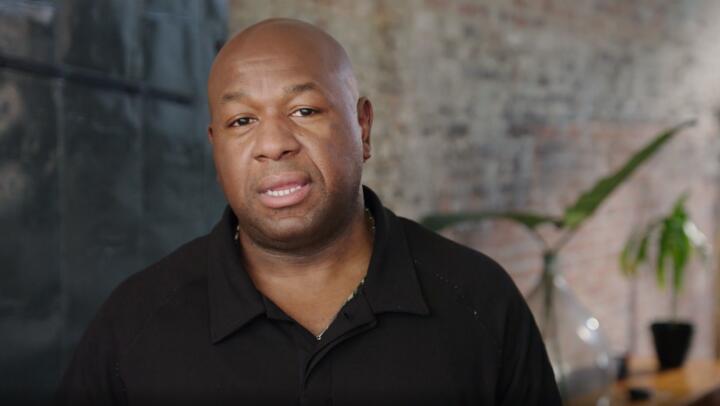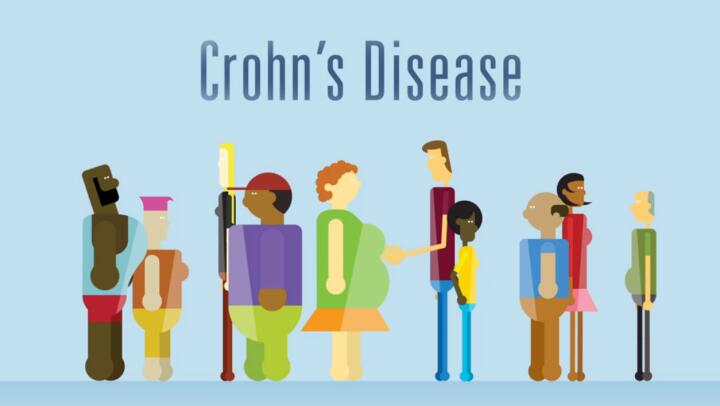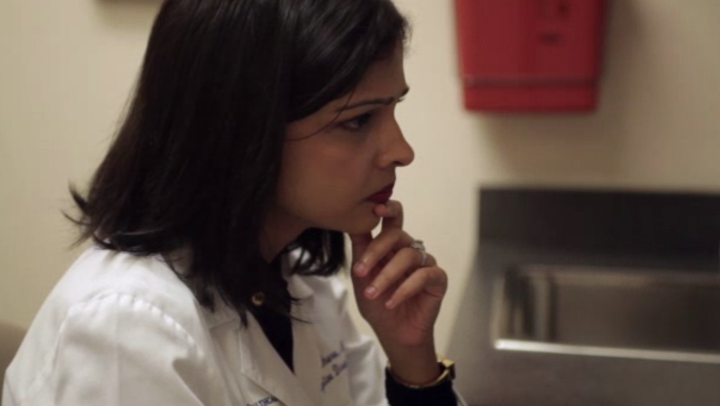PHYSICIAN VOICES
6 Expert Tips for IBS Relief
-
 Get relief from IBS.About 13% of Americans experience irritable bowel syndrome, or IBS, a chronic bowel disorder characterized by periodic diarrhea, constipation, abdominal pain and bloating. While there is a spectrum of medications effective in treating this condition, I always counsel my patients on lifestyle changes that can sustainably ease their IBS symptoms in addition to drug therapies. Making informed decisions on how to manage your IBS can seriously improve your quality of life and alleviate symptoms.
Get relief from IBS.About 13% of Americans experience irritable bowel syndrome, or IBS, a chronic bowel disorder characterized by periodic diarrhea, constipation, abdominal pain and bloating. While there is a spectrum of medications effective in treating this condition, I always counsel my patients on lifestyle changes that can sustainably ease their IBS symptoms in addition to drug therapies. Making informed decisions on how to manage your IBS can seriously improve your quality of life and alleviate symptoms. -
 1. Good sleep hygiene can make a big difference.Sleeping enough and sleeping well can be an integral part of managing IBS and easing symptoms. Consistently getting enough sleep helps regulate your bowel function and calms down gastrointestinal symptoms like diarrhea. Sleeping is also linked to stress reduction in some cases and this may also play a role why sleep is important for IBS patients.
1. Good sleep hygiene can make a big difference.Sleeping enough and sleeping well can be an integral part of managing IBS and easing symptoms. Consistently getting enough sleep helps regulate your bowel function and calms down gastrointestinal symptoms like diarrhea. Sleeping is also linked to stress reduction in some cases and this may also play a role why sleep is important for IBS patients. -
-
 2. Reducing stress can alleviate IBS symptoms.Reducing stress in your life is easier said than done, but finding ways to cope with stressful situations can make your IBS symptoms less of a hardship. Doctors are beginning to understand the gut is a sensory organ and the relationship between your brain and your gut is really complex. When external factors trigger stress, your digestive system registers that response. I have some patients who are lawyers and get diarrhea before big court cases, and other patients that experience IBS symptoms before emotional events like birthdays. I recommend finding ways to reduce stress like meditation, exercise, and following healthy eating and sleeping routines to offset your body’s response when stressful events occur.
2. Reducing stress can alleviate IBS symptoms.Reducing stress in your life is easier said than done, but finding ways to cope with stressful situations can make your IBS symptoms less of a hardship. Doctors are beginning to understand the gut is a sensory organ and the relationship between your brain and your gut is really complex. When external factors trigger stress, your digestive system registers that response. I have some patients who are lawyers and get diarrhea before big court cases, and other patients that experience IBS symptoms before emotional events like birthdays. I recommend finding ways to reduce stress like meditation, exercise, and following healthy eating and sleeping routines to offset your body’s response when stressful events occur. -
 3. For IBS patients with chronic diarrhea, try eating smaller meals.Eating a big meal is a big, sudden stimulant to your digestive system. If you have IBS-D (IBS with diarrhea), your body will often respond to such stimulants by quickly unloading. For my IBS-D patients, I recommend eating more small meals instead of fewer large ones. For instance, try eating a small lunch and then a midafternoon snack.
3. For IBS patients with chronic diarrhea, try eating smaller meals.Eating a big meal is a big, sudden stimulant to your digestive system. If you have IBS-D (IBS with diarrhea), your body will often respond to such stimulants by quickly unloading. For my IBS-D patients, I recommend eating more small meals instead of fewer large ones. For instance, try eating a small lunch and then a midafternoon snack. -
 4. For IBS patients with constipation, try regulating when you go to the bathroom.If you have IBS-C (IBS with constipation), there are ways you can train your digestive system to relieve itself at certain times. Creating a routine that makes sense with your lifestyle—sleeping, eating, and using the bathroom at consistent times each day—can help regulate your gastrointestinal functioning and even reduce stress. This lets your body know when it’s time to relive itself. Talk to your doctor about how to effectively ease constipation symptoms by building a routine.
4. For IBS patients with constipation, try regulating when you go to the bathroom.If you have IBS-C (IBS with constipation), there are ways you can train your digestive system to relieve itself at certain times. Creating a routine that makes sense with your lifestyle—sleeping, eating, and using the bathroom at consistent times each day—can help regulate your gastrointestinal functioning and even reduce stress. This lets your body know when it’s time to relive itself. Talk to your doctor about how to effectively ease constipation symptoms by building a routine. -
 5. Try to eliminate foods that bother you.If you notice that certain foods trigger discomfort and irregular bowel movements, try cutting them out and monitoring your body’s response. For patients that struggle with diarrhea, I often recommend avoiding certain foods associated with other diarrhea-causing conditions, such as lactose intolerance—in these cases, patients should stay away from dairy products. I’ll also suggest reducing consumption of foods with high fructose corn syrup like soda, as well as gluten products.
5. Try to eliminate foods that bother you.If you notice that certain foods trigger discomfort and irregular bowel movements, try cutting them out and monitoring your body’s response. For patients that struggle with diarrhea, I often recommend avoiding certain foods associated with other diarrhea-causing conditions, such as lactose intolerance—in these cases, patients should stay away from dairy products. I’ll also suggest reducing consumption of foods with high fructose corn syrup like soda, as well as gluten products. -
-
 6. Probiotics are trendy, but not necessarily the answer.Probiotics are live cultures of bacteria you can take in pill form for digestive issues. They’re intended to balance out the digestive system’s bacterial load. In your gastrointestinal tract, also known as your gut, there are billions of bacteria playing many different roles. Some are considered “good” bacteria because they help you process food and strengthen your immune system. But some are considered “bad” bacteria, because they can destroy “good” bacteria and create an imbalance. However, because probiotics are “supplements” and are not subject to the same tests as other medications, we don’t know how effective they are in regulating the digestive system at this time. Before taking them (or any medication), talk to your doctor.
6. Probiotics are trendy, but not necessarily the answer.Probiotics are live cultures of bacteria you can take in pill form for digestive issues. They’re intended to balance out the digestive system’s bacterial load. In your gastrointestinal tract, also known as your gut, there are billions of bacteria playing many different roles. Some are considered “good” bacteria because they help you process food and strengthen your immune system. But some are considered “bad” bacteria, because they can destroy “good” bacteria and create an imbalance. However, because probiotics are “supplements” and are not subject to the same tests as other medications, we don’t know how effective they are in regulating the digestive system at this time. Before taking them (or any medication), talk to your doctor.
6 Expert Tips for IBS Relief


































